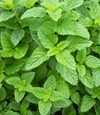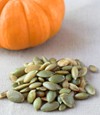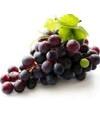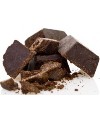folate, folic acid and you
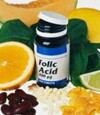 While all of the various B-Complex Vitamins out
there are important, Folate is probably the most essential of the lot.
Folate (also known as Folic Acid) plays a key role in the formation of
both DNA and RNA within your cells helping to prevent mutations and the
creation of cancerous cells. This B vitamin is also important in the
production of red blood cells, making it an essential supplement for
athletes. On top of all that, Folate is also thought to help protect
the body from disease and to keep your cardiovascular system in good
working order.
While all of the various B-Complex Vitamins out
there are important, Folate is probably the most essential of the lot.
Folate (also known as Folic Acid) plays a key role in the formation of
both DNA and RNA within your cells helping to prevent mutations and the
creation of cancerous cells. This B vitamin is also important in the
production of red blood cells, making it an essential supplement for
athletes. On top of all that, Folate is also thought to help protect
the body from disease and to keep your cardiovascular system in good
working order. In your DNA
Folate is a necessary ingredient in the creation of RNA and DNA. As you may remember from high school biology, DNA and RNA are the primary building blocks for cells in the body. It is thought that Folate actually helps keep our DNA from mutating. This helps reduce the chances of cancerous cells developing and keeps things from breaking down. Getting enough Folate is important for prospective fathers to produce healthy sperm. It is also recommended for pregnant women to help prevent birth defects.
Heart Healthy
Folate helps keep you heart healthy by helping to regulate the amino acid homocysteine. Increased levels of homocysteine in your blood stream can weaken blood vessel walls. This can lead to the narrowing of vessel walls and increase the risk of stroke and other cardiovascular problems. Studies have found that taking even a small amount of Folic Acid per day can help reduce stiffness in arteries and keep blood pressure low.
For Athletes and Thinkers
Sports Nutritionists generally recommend that athletes supplement with Folic Acid because of Folate’s key role in the production of red blood cells. Red blood cells carry oxygen to all parts of the body allowing for optimal athletic performances. Getting enough oxygen to the brain is also important especially as you get older. Folic Acid has been found in studies to help decrease the risk of developing both Alzheimer’s and Schizophrenia. It has also been shown to help improve short term memory, verbal fluency and problem solving ability.
Sources
Those dark green vegetables (spinach, kale, and broccoli) that you tend to leave behind on your plate are great sources of folate. Citrus fruits and beans are also good sources of Folate. The synthetic form of Folate is known as Folic Acid. Many foods such as breads and cereals are fortified with folic acid. Folic Acid can also be found in supplement form on its own or included in a good multivitamin such as Six Nutrition.
Folate is water soluble so there is little risk in overdosing, however taking more than 1000 micrograms a day can lead to a B-12 deficiency. Folic Acid may also interact with certain medications so be sure to discuss your plans to supplement with your doctor.
Tweet
Most popular content:
- Why Vitamin D is Good For Men?
- What People Are Saying About Evora Plus?
- Back Pain Tips
- Take Your Vitamins and have better sex
- Women and Zenerect
- In Bed With Ginger
- Olive Oil For Your Aching Joints
- Quitting Pain Killers
- What is The Deal With Bioavailability?
- Probiotics and Energy
- At Home Opiate Detox
- Rapid Detox Concerns
- AuraWave Review
- How to Shave?
- Pain and Electricity
- Turmeric For Inflammation
- What is in Hot Rawks?










